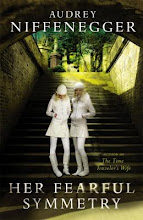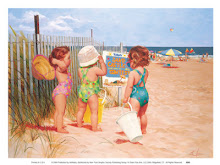 BTT is a long running bookish meme. To join in pop over and read the 100's of interesting comments. This week's question courtesy of Barbara
BTT is a long running bookish meme. To join in pop over and read the 100's of interesting comments. This week's question courtesy of BarbaraIt does seem like modern fiction just “tells the story” without much symbolism. Is symbolism an older literary device, like excessive description, that is not used much any more? Do you think there was as much symbolism as English teachers seemed to think? What are some examples of symbolism from your reading?
This is a really interesting question (BTT's always are). It might be one of those right brain vs left brain things, some readers just don't see the multiple layers that language offers; there's nothing wrong with that at all. The problem develops when one type of reader says 'my way or the highway', as criticism for either seeing too much or too little in any given narrative.
Reading is a subjective contextual experience. There's no harm in reading reading Aniaml Farm as a commentary on Stalin and WWII, or as prophecy, or as a great romp where pork is king. As to the question of whether symbolism is an older device - nup I don't think so. As long as words are set to paper there'll be readers looking beneath them for the hidden/symbolic. A psychoanalytical reading, for example, of any text will reveal hidden symbolism of even the most modern text.
Readers will find whatever they need to find (whether it was intended by the author or not). I agree with Roland Barthes - the author is dead - the miunte s/he writes "The "end".









6 comments:
Great answer. I agree that the symbolism is there, but how readers analyze or discuss it can create problems.
Janet@acrossthepage.net
So true. The deeper meanings exist, whether or not the author intended them to exist.
It is all within the readers mind. I agree with you.
Symbolism in writing
I like the idea that the reader finds what they need to find, either in symbolism or theme, everyone preceives things differently.
I think only careful, meticulous readers could read into these symbols. In most cases, readers would understand the story without fully grabbing the symbols, but the level of appreciation would be compromised. Toni Morrison would be the prime example. Not all books are endowed with layers of meaning and implications, but symbolism can be a great device to describe things that are very intangible, like death. Symbols can also be very subjective entities. Sometimes I cannot read into any symbols in a book just simply because I lack the personal experience that would put me in tune to the author's meaning.
Hope you enjoy The Handmaid's Tale, with symbols galore as well! :)
"Reading is a subjective contextual experience."
Bravo!
Love the heading picture and quote on your blog. This is my first time here!
Post a Comment